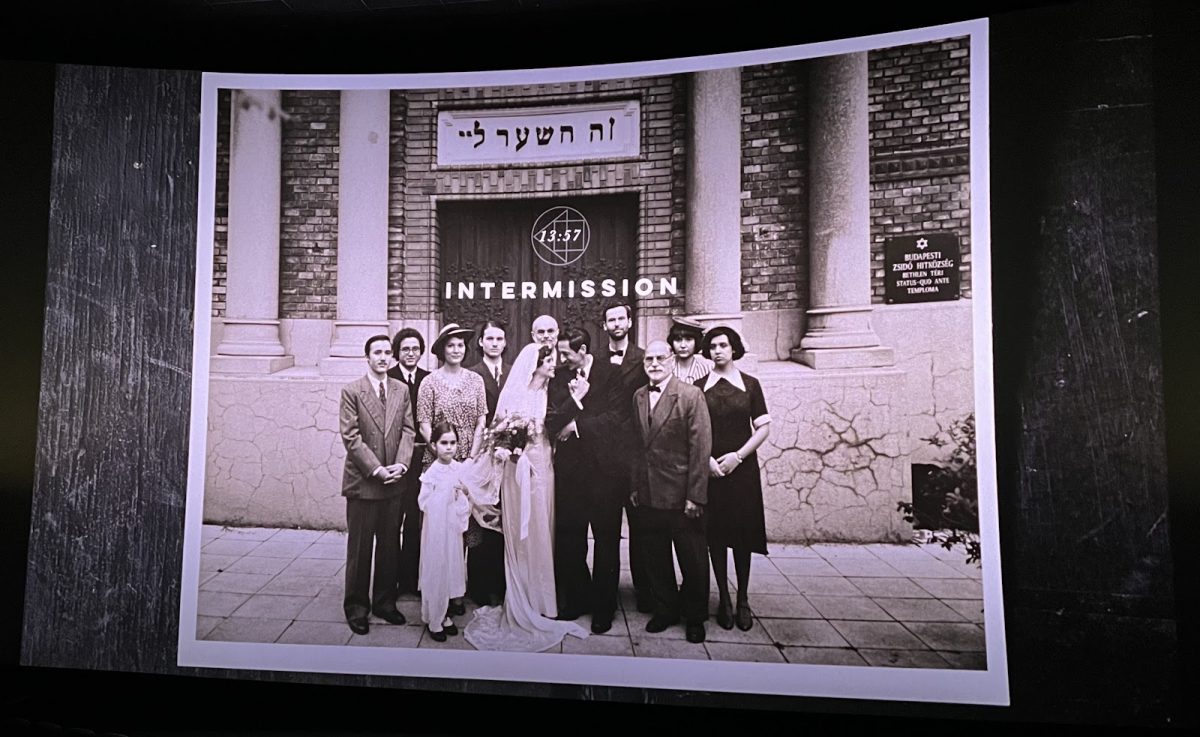On Jan. 23, The Academy of Motion Picture Arts and Sciences revealed its nominations for the 97th annual Academy Awards ceremony, which is often known as the biggest night of the year in film. With the usual snubs and surprises with the nominations, a different factor began to sway awards season in 2025. This year’s Oscars season brought to light some of the first examples of major motion pictures using artificial intelligence (AI) in the filmmaking process. Even more so, most of the films using AI were nominated in the Best Picture category.
Just a couple of years ago, films such as “The Brutalist,” “Emilia Perez,” and “Alien: Romulus,” would have never gotten nominated because of their utilization of AI. Even after the Writer’s Guild and Screen Actors Guild went on strike to push back against major film studios for wanting to incorporate AI in the production of movies and TV shows, why would the Academy consider nominating movies with AI?
Brady Corbet’s “The Brutalist” was one of the first high-profile AI controversies of this year’s Oscars cycle. The movie uses artificial intelligence to augment lead actor Adrien Brody’s Hungarian speaking, and Brody’s performance was nominated for the “Best Actor” category at the Oscars. According to Corbet, no AI was used to augment parts of the movie that he made, so the usage of AI seems to stick to the film’s editor, Dávid Jancsó, who is also nominated for an Oscar in the Best Editing category.
On top of “The Brutalist,” “Emilia Perez” led the Oscars this year with 13 nominations, setting the record for most nominations earned by a non-english film. The film is a musical, with two songs nominated for a “Best Original Song” Oscar. AI was used in the movie to enhance the lead actress’ singing, allowing Karla Sofía Gascón, who was nominated for “Best Actress” and “Best Original Song,” to hit notes she would not have been able to do naturally.
Similar to “The Brutalist,” many of “Emilia Perez’s” nominations are in jeopardy due to AI usage. Along with Best Original Song and Best Actress, “Emilia Perez” is also up for Best Picture, Best International Feature, Best Director, Best Editing and Best Sound.
Two more Best Picture nominees, “Dune: Part Two” and “A Complete Unknown” also used AI, but the reports of how they were used come from people familiar with the productions, not those in charge of them. Brady Corbet coming forward to announce the usage of AI in “The Brutalist” may set him apart from other nominees who have used AI and buy him some grace from the Academy voters. He isn’t alone in his disclosure, as there is another nominee that proudly used AI.
Earlier in the year, “Alien: Romulus” brought controversy due to an AI portrayal of the late actor Ian Holm. In order to bring the character to life, the VFX team behind the film used a mix of animatronics, CGI and AI to recreate the likeness of his character from the 1979 film “Alien.”
AI usage in “Alien: Romulus” was not hidden from the public, as part of the press tour for the movie involved multiple interviews explaining how they brought back the late actor. People involved in the production, including director Fede Alvarez, were clear that they received permission from the family of Ian Holm to bring back his likeness through AI.
“Alien: Romulus” was nominated for Best Visual Effects, bringing to mind the Academy’s rejection of the 1982 film “Tron.” The film was nominated for Best Costume Design and Best Sound Mixing, but its bid for Best Visual Effects was disqualified because the movie utilized computers to create its effects. The Academy viewed this as cheating, though as the technology became more ubiquitous, they have since reversed this stance.
Even with these high-profile Oscar nominees embracing AI, there are movies taking a stand against it. “Heretic,” a smaller film by studio A24, fired back at Hollywood for its use of AI.
In the end credits, the movie states that no AI was used in its production, similar to the no animals were harmed disclaimer introduced by “The Doberman Gang.” Similar to how the American Humane Society requires films to disclose animal abuses on set and put in that disclaimer, it seems that Hollywood is trending towards the necessitated disclosure of AI usage.
In a report released in February 2025, the Academy is considering requiring AI disclosure for all films to be eligible for Oscar nomination. It is not unprecedented for the Academy to instate various rules for Oscar eligibility, as they recently implemented diversity and representation requirements for movies to be submitted for Best Picture categories.
This is, however, the first time that the Academy has placed bars around the technology a film can use. Though Tron was disqualified for its computer-generated effects, no formal statute was implemented rejecting these effects, and the precedent was never cited again. It’s unclear whether the use of AI will positively or negatively impact a film’s chances to win an Oscar, and the Academy doesn’t seem to be planning a ban on AI-powered technology’s use in nominated films. However, the required disclosure rule seems to hint that AI usage impacts their decision on a film’s nomination in some way.














































































